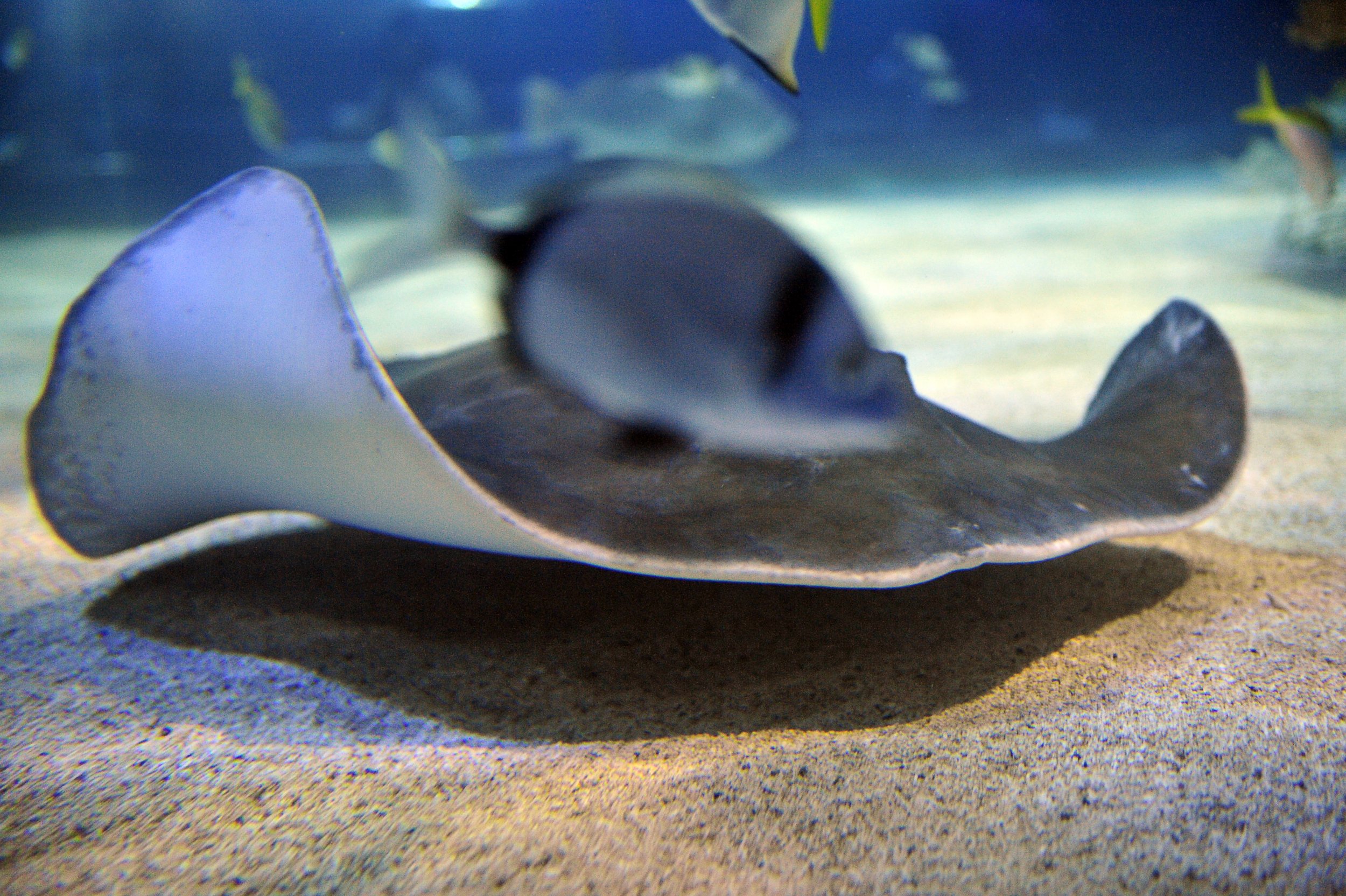
The first living organism to evolve the ability to walk didn't really use it's new skill much—in fact, it remained in the ocean, a new study found. The research also found that the ability to walk evolved way earlier than we previously thought, but when organisms started to use this skill is still up for debate.
In the study, published online in Cell, scientists from New York University analyzed the genome of a species of fish called little skates. These fish look similar to a happy ravioli and are related to sharks and rays, but it's their DNA that the researchers were really interested in. The researchers used RNA sequencing to look into the genes. They particularly zoomed in on a gene called Foxp1, which among many functions is responsible for the motor functions of walking, Smithsonian reported. In their analysis, the team realized that many of these motion genes are similar between skates and mammals, and although skates do not actually walk, they have the neural process necessary for this action.
Related: Evolution Of Language: Brain Pathways For Communication Are More Ancient Than Humans
Turns out, these tiny sea creatures possess the genetic code needed to walk, and they obtained the gene 420 million years ago, way earlier than any land creature did. This makes them descendants of the first vertebrate with the neural pathway necessary for walking. The researchers involved were surprised to learn that the ability to walk evolved from a gene found in creatures that cannot, as past theories suggest that organisms evolved the ability as they first crawled out of the ocean.
Related: Prehistoric, Dinosaur-Era Shark With Insane Teeth Found Swimming Off Coast Of Portugal
"It has generally been thought that the ability to walk is something that evolved as vertebrates transitioned from sea to land," says one of the researchers, Jeremy Dasen a neurobiologist the New York University School of Medicine, Phys Org reported. "We were surprised to learn that certain species of fish also can walk. In addition, they use a neural and genetic developmental program that is almost identical to the one used by higher vertebrates, including humans."
The finding isn't just interesting, it could have real life medical implications. For example, while its hard to study the neural systems involved with walking in mammals, it may be easier to do this on skates. This will give researchers a better idea of how the nerves that control walking develop. In the long run, this could even lead to better ways to treat some motor neuron diseases, Science Alert reported.
Uncommon Knowledge
Newsweek is committed to challenging conventional wisdom and finding connections in the search for common ground.
Newsweek is committed to challenging conventional wisdom and finding connections in the search for common ground.
About the writer
To read how Newsweek uses AI as a newsroom tool, Click here.








